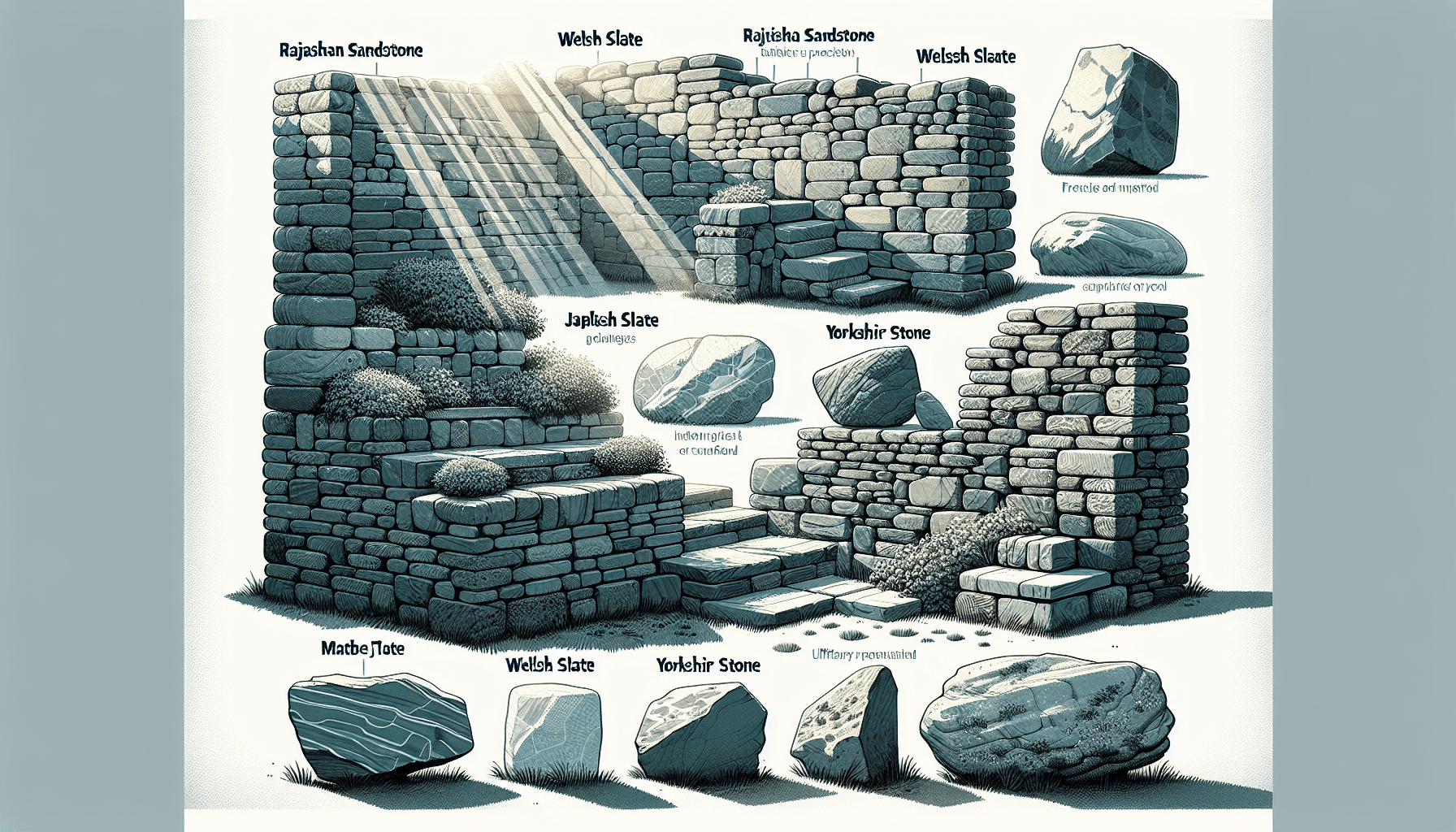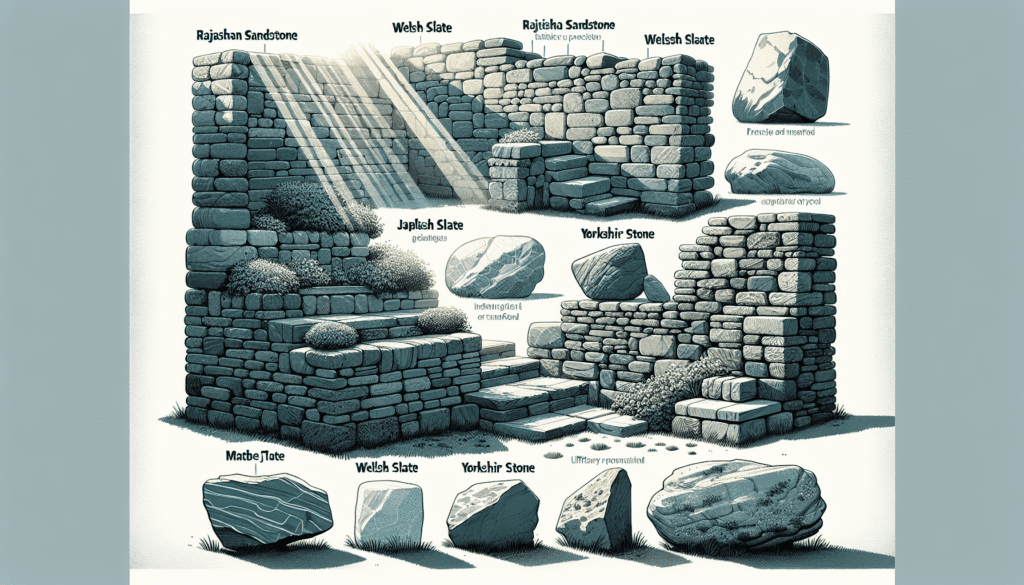
When it comes to choosing the right material for your retaining wall blocks project, there are a variety of options to consider, including retaining wall stones and retaining wall systems. Concrete blocks are a popular choice due to their durability and versatility.
Natural stone offers a more organic and timeless look, perfect for creating a rustic or natural feel in outdoor spaces.
Materials like bricks, pavers, and various retaining wall systems each offer their own unique advantages.
When making your decision, it’s important to take into account key factors such as cost, maintenance, and installation. Working with a trusted General Contractor like Rockwell Construction can also provide valuable insight and expertise in selecting the ultimate retaining wall materials for your project.
Click here to learn more about rockwell-construction.com
How to Choose the Right Materials for Your Wall
When it comes to choosing the perfect materials for your retaining wall design, it is essential to consider the overall design and functionality of the wall, as well as the retaining wall construction process and the potential retaining wall cost. Whether you are looking for a practical solution to retain soil or a decorative element to enhance your outdoor space, the right material can make all the difference.
From natural stones to concrete blocks, each material offers its own unique advantages in terms of durability, aesthetics, and retaining wall cost.
Considering the climate and weather conditions in your area is also crucial, as certain materials may be more suitable for withstanding harsh elements.
By carefully evaluating these factors, you can ensure that the materials you choose not only meet your practical needs but also enhance the overall look and feel of your outdoor space.
Material Options for Every Budget
When it comes to choosing materials for your retaining wall, there are options to fit every budget and ensure retaining wall stability. Whether you have a limited budget or more flexibility to invest in high-end materials, there are choices that cater to your specific needs.
Each material has its own advantages, such as affordability, durability, and aesthetics, making it easier to find the perfect fit for your retaining wall project.
Understanding the pros and cons of different materials and their suitability for retaining wall stability and drainage is crucial in making an informed decision that meets your budget and design requirements.
With options like concrete blocks, natural stone, and other materials, you can create a retaining wall that meets your needs and budget.
Options for Retaining Wall Materials
- Concrete blocks are affordable and provide good stability for retaining walls.
- Natural stone is durable and offers a more aesthetic appeal for retaining walls.
- Other materials, such as timber or brick, can also be used for retaining walls to fit specific design and budget requirements.
Enhancing the Aesthetics of Your Wall
Enhancing the aesthetics of your wall greatly depends on the choice of retaining wall colors and textures. Factors such as retaining wall height, curves, colors, patterns, and textures all play a significant role in creating a visually stunning and cohesive look that complements the surrounding environment.
Whether you opt for concrete blocks for a more modern feel or natural stone for a rustic look, each option offers a unique aesthetic appeal.
Incorporating decorative elements like lighting or planters can further elevate the aesthetics of the space, creating a truly captivating wall that enhances the overall beauty of your surroundings.
Key Factors to Consider When Selecting Materials
When choosing materials for your retaining wall durability, it’s important to consider factors such as strength, moisture resistance, and long-term maintenance to ensure the functionality and longevity of the structure. You should also think about the environmental impact and availability of the materials.
These elements will directly impact the wall’s ability to withstand pressure, weathering, and soil erosion.
By carefully evaluating these key factors, you can confidently select materials that will ensure the long-term integrity and performance of your retaining wall functionality.
Rockwell Construction specializes in rock wall retaining walls and helical deck piers, so you can trust their expertise in selecting the right materials for your project.
| Factors to Consider | Impact on Retaining Wall |
|---|---|
| Strength | Ability to withstand pressure. |
| Moisture Resistance | Ability to withstand weathering. |
| Long-term Maintenance | Impact on soil erosion. |
| Environmental Impact | Availability of materials. |
Exploring Pros and Cons of Different Materials
When considering different materials for your retaining wall, it is vital to think about their versatility, flexibility, and affordability. Each material has its own unique benefits and drawbacks, so it is essential to carefully consider these factors before making a decision.
It is crucial to highlight any special or unique characteristics that set each material apart from the others.
It is important to evaluate how each material compares in terms of retaining wall strength, longevity, and weather resistance, as well as any specific environmental considerations.
By carefully considering these key factors, you can confidently select the right material for your retaining wall project.
Tips for Installation and Maintenance
When you’re installing and maintaining a retaining wall, it’s important to prioritize sustainability and eco-friendly materials. Choosing DIY-friendly materials, whether natural or manufactured, can greatly impact the longevity of your project.
Opting for eco-friendly materials not only reduces the environmental impact but also ensures durability.
Regular inspections and upkeep are crucial for maintaining the integrity of your retaining wall.
Schedule routine checks and promptly address any issues to ensure the long-term success of your project. By prioritizing sustainability in the installation and maintenance of your retaining wall, you’re not only benefiting the environment but also setting yourself up for a durable and long-lasting structure.
Benefits of Using Eco-Friendly Materials for Retaining Walls
- Choosing eco-friendly materials reduces the environmental impact.
- Regular inspections and upkeep ensure the longevity of the retaining wall.
- DIY-friendly materials make installation and maintenance easier.
- Opting for sustainable materials increases the durability of the project.
Achieving Longevity and Durability with Quality Materials
Choosing the right retaining wall materials is crucial for achieving longevity and durability in your outdoor structures.
It’s important to consider the impact of environmental factors, such as heavy rainfall, extreme temperatures, and soil erosion, on the materials you choose.
The design and construction process should prioritize the strength and resilience of the materials to ensure a long-lasting retaining wall.
When selecting a retaining wall brand or model, look for options that are known for their durability and ability to withstand various weather conditions. Prioritizing quality materials and construction will ensure that your retaining wall remains strong and reliable for years, so be sure to consult with a reputable retaining wall contractor for the best results.
Sustainable and Eco-Friendly Options
When it comes to sustainable and eco-friendly options, it is crucial to prioritize retaining wall material selection that has a positive impact on the environment. From renewable building materials to energy-efficient appliances, every choice can make a difference in reducing your carbon footprint and promoting sustainability.
Rockwell Construction specializes in rock wall retaining walls and helical deck piers, offering eco-friendly solutions for outdoor projects.
By choosing sustainable options, such as those offered by Rockwell Construction, you can contribute to conserving natural resources and supporting environmentally responsible practices.
Evaluating factors like retaining wall material properties and retaining wall material installation tips can guide you in making informed decisions for a more sustainable future.
| Retaining Wall Material Properties | Retaining Wall Material Installation Tips |
|---|---|
| Renewable building materials | Guidance on proper installation techniques. |
| Energy-efficient appliances | Tips for minimizing environmental impact during installation. |
